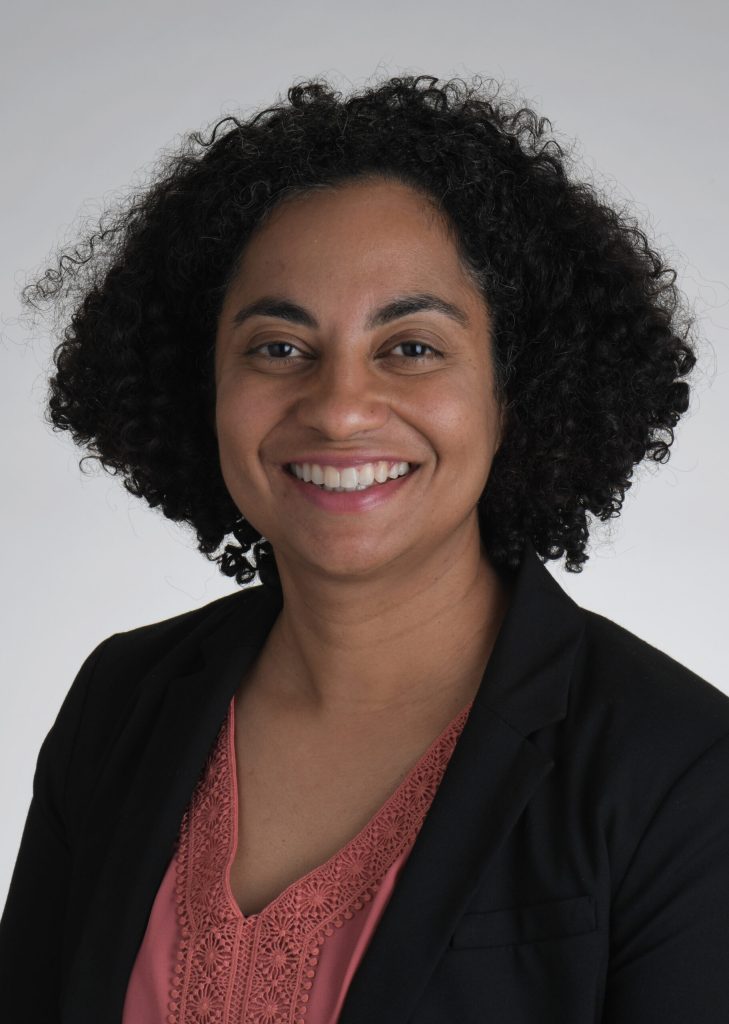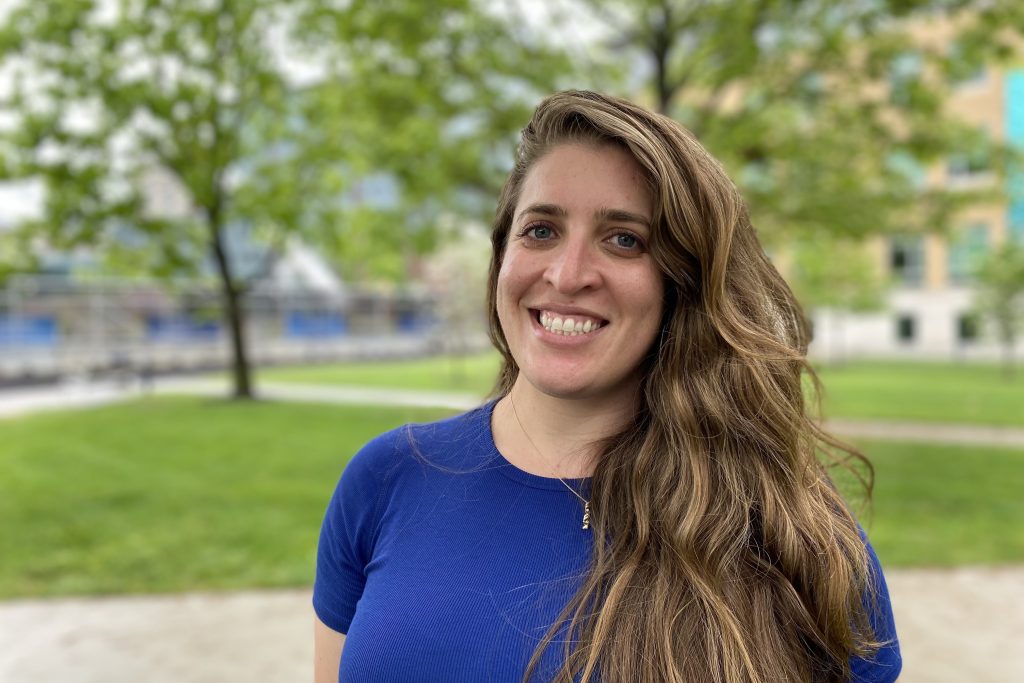
Editorial Office
Mailing Address
Adam J. Gordon, MD MPH FACP FASAM
Editor-in-Chief, Substance Use & Addiction
Colorow Building
383 Colorow Building, Room 203 E
Salt Lake City, UT 84108
(Note: DO NOT mail manuscripts.)
Connect with Substance Use & Addiction Journal
X: @SAj_AMERSA (https://x.com/SAj_AMERSA)
Editor-in-Chief

Adam J. Gordon, MD MPH FACP DFASAM has a professional mission to improve the access and quality of care of patients who have vulnerabilities, including those with addiction and substance use disorders. He is a tenured Professor of Medicine and Psychiatry, Associate Chief of Epidemiology at the University of Utah School of Medicine and the Section Chief of Addiction Medicine at the VA Salt Lake City Health Care System. He is board-certified internal medicine and addiction medicine physician and is a Fellow in the American College of Physicians (FACP) and a Distinguished Fellow in the American Society of Addiction Medicine (DFASAM).
He founded and is the Director of the University of Utah’s Program for Addiction Research, Clinical Care, Knowledge, and Advocacy (PARCKA) and is the Director the Vulnerable Veteran Innovative Patient-Aligned-Care-Team (VIP) Initiative. He is the PI of the Greater Intermountain Node of the NIH NIDA’s Clinical Trial Network. He is a Core Faculty of the VA Salt Lake City Informatics, Decision-Enhancement and Analytic Sciences (IDEAS) Center, a VA Health Services Research and Development (HSR&D) Center of Innovation (COIN). He is the Editor-in-Chief of Substance Use & Addiction Journal.
His interest in alcohol, opioid, and substance use disorder research is longstanding: he has a 27-year history of conducting research on the quality, equity, and efficiency of health care for vulnerable populations, including those with substance use disorders. His methodologic skills include health services, clinical trial, large database, and implementation science research. He has received efforts on over 100 federal peer reviewed grants, including those from the NIH, VA, AHRQ, PCORI, SAMHSA, and foundations. He has authored over 369 peer reviewed articles (cited >12,00 times, H-Index = 62) and hundreds of scholarly presentations and abstracts. As evidence of how his research has impacted clinical care and my profession, he was awarded one of VA HSR&D’s highest honors by receipt of the 2021 VA Health Services Research and Development (HSR&D) “Health System Impact Award” and received the 2022 David C. Lewis, MD Service to the Association for Multidisciplinary Education and Research in Substance Use and Addiction (AMERSA) Award.
He has mentored undergraduate, graduate, MD, and PhD trainees, VA and K- Career Development Awardees, and junior through tenured faculty. He is the MPI of a large T90/R90 Center grant to improve post graduate training in pain, addiction, and implementation science research. His post-doctoral mentees have received research Career Development Awards and have obtained large research awards. He has been named a mentor on over a dozen current or prior VA, NIH K-, or institutional K-awards. He has been honored locally and nationally for his mentorship abilities: he was named as an inaugural VA Health Services Research and Development National Mentor Network (MNet) mentor, received the “Allen Humphrey Excellence in Medical Student Research Mentoring Award” from the University of Pittsburgh School of Medicine, and was the recipient of the 2013 W. Anderson Spickard, Jr. Excellence in Mentorship Award from AMERSA.
He lives in Salt Lake City, Utah with his wife, Molly Conroy; three children Lillian, Neil, and Martha; “King” Arthur (a cat); Tristan the wonder dog; and a bunch of pond fish. In his spare time, he enjoys gardening, particularly growing deep shade perennial plants.
Deputy Editors

Colleen Corte, PhD, RN, FAAN is Associate Professor Emerita at the University of Illinois at Chicago College of Nursing where she taught Research Design and Methods for PhD students and served as Director of the PhD program. Dr. Corte’s program of research is focused on the ‘drinker identity’ as a cognitive vulnerability for alcohol use and alcohol problems. She found evidence of this emerging identity – a powerful predictor of alcohol use – in children as young as 9-12 years of age. She has focused on identifying modifiable precursors of the drinker identity in a variety of samples including children, adolescents, young adults, and sexual minority (LGBT) young people.
Dr. Corte has published widely in interdisciplinary substance use journals as well as nursing research and clinical journals, with many papers co-authored by PhD students. Her research has been recognized by the Research Society on Alcoholism and the Midwest Nursing Research Society. In 2021, she received the Betty Ford Award from AMERSA. Dr. Corte is also a Fellow in the American Academy of Nursing.On a personal note, she and her husband have been boaters for many years. After retiring, they sold their “dirt” home and have lived full-time aboard their 42 foot Trawler, Lady Kadey. In 2022, she and her husband completed the Great Loop, a 5500+ mile system of waterways that encompass the eastern portion of the United States. It is made up of both natural and man-made waterways, with the route including the Atlantic Intracoastal Waterway, the New York State Canals, the Great Lakes, the inland rivers and the Gulf of Mexico.

Babalola Faseru, MBChB, MPH, CPH, is a Tenured Professor of Population Health, Family Medicine and Community Health at the University of Kansas Medical Center (KUMC), Consultant Medical Epidemiologist at the Kansas Department of Health and Environment (KDHE) and the Director of the Tobacco Treatment Education at the University of Kansas School of Medicine, Kansas City, Kansas, USA. Dr. Faseru has served as a principal investigator and co-investigator on multiple US National Institutes of Health grants, private foundation grants and state contracts aimed at reducing tobacco-related health inequities. Dr. Faseru received his medical degree from Obafemi Awolowo University, Nigeria, did housemanship at the Lagos University Teaching Hospital, Nigeria and Residency in Community Medicine at the University College Hospital, Nigeria. He was awarded a World Health Organization International Agency for Research on Cancer (WHO IARC) Cancer Research Fellowship and obtained his Master of Public Health degree from the University of Kuopio (now University of Eastern Finland). He also completed postdoctoral fellowships in Tobacco Research and Clinical Epidemiology at the University of Kansas Medical Center.
Dr. Faseru has almost 20 years research experience including clinical trials and observational studies focused on reducing tobacco-related health disparities affecting African Americans, American Indians, and hospitalized patients. He has published 98 peer reviewed articles in high impact journals (h-index 25; i10-index 53) including JAMA, Journal of National Cancer Institute, Cochrane Database of Systematic Review, Clinical Pharmacology and Therapeutics, Addiction, American Heart Journal, and Cancer Epidemiology Biomarkers and Prevention. He currently serves as a member of the Kansas Preventive Health and Health Services Block Grant Advisory Committee, Kansas Cancer Partnership steering committee and the Tobacco Free Kansas Coalition board. He is a member of the International Association for the Study of Lung Cancer (IASLC) Tobacco Control and Smoking Cessation Committee and has chaired its Education subcommittee. He is a councilor of the Council for Tobacco Treatment Training Programs (CTTTP), the accrediting body for tobacco treatment specialist training programs, a member of the National Certification Commission for Addiction Professionals Nicotine Dependence Specialist Task Force and a Fellow of the Society for Research on Nicotine and Tobacco. He was the Lead Section Editor of the Epidemiology and Prevention Section of the Seventh Edition of the American Society of Addiction Medicine (ASAM) Principles of Addiction Medicine and served on the Executive Board of the Association for Multidisciplinary Education and Research in Substance use and Addiction (AMERSA) as Member-at-Large (2011-2013), Treasurer (2013-2015) and as Associate Editor of Substance Use and Addiction Journal (SAj) from 2013-2022. He is on the editorial board of Contemporary Clinical Trials, and Journal of Community Medicine and Primary Health Care. He is a member of the Council of Science Editors (CSE).
Dr. Faseru received the Excellence Award in Public Health Teaching at the University of Kansas School of Medicine in 2011, 2014 and 2022. He delivered the Murray Goldstein Commemorative Lecture in Public Health and Preventive Medicine at the America Osteopathic College of Occupational and Preventive Medicine in 2021 and he received the IASLC Lectureship Award for Tobacco Control and Smoking Cessation at the 2024 World Conference on Lung Cancer.
Associate Editors

Mark Bounthavong, PharmD, PhD, MPH is Professor of Clinical Pharmacy at Skaggs School of Pharmacy & Pharmaceutical Sciences, University of California at San Diego and the National Clinical Program Manager at the U.S. Department of Veterans Affairs (VA) Pharmacy Benefits Management. He is also a health economist at the VA Health Economics Resource Center.
Mark’s research has been focused on behavioral strategies used to address substance use disorder, particularly academic detailing, which is an outreach delivered by clinicians to augment and align other clinician’s prescribing behavior with evidence-based practice.

Deborah S. Finnell, PhD, RN, CARN-AP, FAAN is Professor Emerita at Johns Hopkins University School of Nursing, a Fellow in the American Academy of Nursing (FAAN) and is board certified at the advanced practice level in addictions nursing (CANR-AP). Throughout her career, Dr. Finnell held teaching and leadership roles in academia as well as clinical and administrative roles in private, public, and federal healthcare systems focusing on psychiatric mental health and substance use-related care. Dr. Finnell translated the neurobiological science related to mental and substance use disorders in her clinical practice, teaching, research, and policy/advocacy work. She served as Chairperson of the Addictions Nursing Certification Board (2002-2007) and President of the International Nurses Society on Addictions (2010-2012). She served on the Board of Directors for AMERSA (2017-2017) with service as President-Elect (2019-2022) and currently serves as President.
Dr. Finnell has been the recipient of several federal grants supporting the advancement of nurses’ substance use-related knowledge and competence. Dr. Finnell led the development of substance use-related competencies for nurses, including graduate-level and advanced-practice nurses, published in SAj, and served as co-editor for the American Nurses Association/International Nurses Society on Addictions 2013 edition of the Scope and Standards of Addictions Nursing. Dr. Finnell has over 100 peer-reviewed publications (h-index 26; i-10-index 43) and book chapters, over 30 of which relate specifically to alcohol and or other drugs.
She obtained her baccalaureate degree in nursing from Roberts Wesleyan College, master’s degree in psychiatric-mental health nursing and post-master’s in psychiatric-mental health nursing from the University at Buffalo, Buffalo, NY where she also earned her doctoral degree in nursing. She completed a post-doctoral fellowship at the VA of Western New York (2005-2007). Dr. Finnell received the Excellence in Research Award (2010), Excellence in Education Award (2009), and Distinguished Faculty Mentor Awards (2007, 2008) from the University at Buffalo School of Nursing.
She lives in East Amherst, New York with her husband Timothy where they share a passion for landscaping and gardening, the Buffalo Philharmonic Orchestra, and the Shaw Festival.

Khadejah F. Mahmoud, PhD, MSN, RN is an Assistant Professor at the Applied Science Private University, Faculty of Nursing, Amman, Jordan. She earned her PhD from the University of Pittsburgh School of Nursing. She has also completed a Postdoctoral Fellowship in Health Policy and Management from the University of Pittsburgh Graduate School of Public Health. Dr. Mahmoud’s research focuses on promoting the use of person-centered language in substance use disorders, increase awareness related to substance use issues, develop stigma-reduction interventions, and facilitate the translation of best evidence-base knowledge and skills set into clinical practice, especially among persons with substance use disorders and women. She has also published extensively and dissemenated her work in national and international conferences.
Dr. Mahmoud is the recipient of many awards and accolades, including the 2024 Sigma Theta Tau International Society Emerging Nurse Researcher/Scholar award for the Middle East Region, the 2023 Global Advocacy Academy Scholar from Sigma Theta Tau International Society, the Rising Star of Research and Scholarship Poster Program, the Ruth Perkins Kuehn Award for Doctoral Student, the Marianne Marcus Award of the AMERSA, the International Nurses Society on Addictions Newcomer of the Year Award, and the American Psychiatric Nursing Association Board of Directors Student Scholar. Her work has also been extensively funded via the Jordan Nutrition Innovation Lab Research Fellowship, Board of Directors Student Scholar, the Center for Regulatory Excellence (CRE) Grant Program for Doctoral Students form the National Council of State Boards of Nursing (NCSBN), the Thomas Nimic, Jr. Competitive Research Fund, and the Sigma Foundation Small Grants among others. She plans to extend her work to focus on patient outcomes, taking into consideration a more global approach.

Elizabeth M. Oliva, PhD received her PhD in Developmental Psychopathology and Clinical Science from the University of Minnesota where her graduate work examining the etiology of substance use from adolescence to early adulthood was funded by a National Science Foundation Graduate Fellowship.
She completed her pre-doctoral clinical psychology internship at UCSD/VA San Diego. Dr. Oliva is a Senior Evaluator for the VA Program Evaluation and Resource Center (PERC; one of three VA Office of Mental Health and Suicide Prevention evaluation centers) and an Investigator at the VA Center for Innovation to Implementation (Ci2i) at the VA Palo Alto Health Care System.
She is the VA National Opioid Overdose Education and Naloxone Distribution (OEND) Coordinator and also conducts research on VA OEND implementation and post-overdose care. In her role as VA National OEND Coordinator, Dr. Oliva works with interdisciplinary teams—e.g., MDs, PharmDs, RNs, LCSWs, Psychologists—to create national VA OEND resources for patient and provider training.
She is also supporting national implementation of other harm reduction interventions in VA, including Syringe Services Programs (SSPs) and fentanyl test strips. Dr. Oliva also helped develop and implement the VA Stratification Tool for Opioid Risk Mitigation (STORM).

Marianne Pugatch, Ph.D., MSW, is an Assistant Professor of Psychiatry and Behavioral Sciences at Ann & Robert H. Lurie Children’s Hospital of Chicago/Northwestern University Feinberg School of Medicine. Dr. Pugatch develops digital health interventions to prevent risky alcohol use in underserved youth. She also researches the optimal implementation of substance use prevention and treatment practices into healthcare delivery systems. Her research includes collaborating with youth and caregivers and seeks to interrupt the high-risk addiction trajectory in adolescence, reduce opioid overdose risk and mitigate health disparities.
Dr. Pugatch received her Ph.D. from the Heller School for Social Policy and Management in social science and policy research as an NIAAA trainee. While completing her doctorate, she trained as an advanced interprofessional addiction fellow at the Boston VA Healthcare System and, worked at the Center for Healthcare Organization and Implementation Research, VA Boston, examining how to improve the quality of healthcare for Veterans. Before research training, Dr. Pugatch was the clinical director of social work at the Adolescent Substance Use and Addiction Program, Boston Children’s Hospital, where she co-developed and pilot-tested one of the first opioid use disorder group programs for youth and caregivers. As a teaching associate at Harvard Medical School, she supervised, mentored, and trained staff, fellows, and students in addiction medicine. In her free time, she enjoys hiking, watching movies, and being with her family and cat, Charlotte.

Taneisha Scheuermann, PhD is an Associate Professor in Population Health at the University of Kansas Medical Center on the Kansas City campus. She is a counseling psychologist, and her research focuses on smoking cessation. Dr. Scheuermann has a strong emphasis on health disparities, including racial/ethnic and socioeconomic disparities related to tobacco use and associated health outcomes. Her research to-date has focused on nondaily and daily smokers, racial and ethnic minorities, hospitalized patients, and pregnant and postpartum populations. Research interest areas include dissemination and implementation science, mHealth, clinical trials, and survey research. She enjoys reading, travel, and walking her dog.

Elizabeth Siantz, PhD, MSW is an Assistant Professor in the College of Social Work at the University of Utah. Her research focuses on the promotion of health equity for persons with mental illness and substance use disorders. She is a mixed methods implementation scientist who studies the development and implementation of integrated primary care and behavioral health services and peer support specialists across a range of clinical and cultural settings.
Dr. Siantz received her MSW from Columbia University and then completed her PhD in social welfare at the University of Southern California. She completed her postdoctoral training at the University of California San Diego Herbert Wertheim School of Public Health.

Jessica J Wyse, PhD, MPP is Assistant Professor in the OHSU-PSU School of Public Health, Core Investigator at the VA Portland Health Care System’s (VAPORHCS) Health Services Research & Development (HSR&D) Center to Improve Veteran Involvement in Care (CIVIC) and Associate Director of VA Portland’s HSR&D Advanced Fellowship Program.
Dr. Wyse received a doctorate in Sociology and Public Policy from the University of Michigan, Ann Arbor, where she also completed a post-doctoral fellowship at the Institute for Social Research. She received further training in health services research as an OAA postdoctoral fellow at the VA Portland Health Care System.
Dr. Wyse’s research seeks to understand how to enhance access to, and delivery of, medications for opioid use disorder (MOUD) and other evidence-based treatments for substance use disorders. She often uses qualitative research methods to draw out patient experiences and perspectives with the goal of informing and improving upon programs, policies and care delivery.
Editorial Scholars

Rebekah Halmo, PhD, MSW, LCSW, is a Research Scientist in the School of Nursing (SON) at Northeastern University’s Bouvé College of Health Sciences in Boston, MA. In this role, she engages a multidisciplinary team of health professions faculty, students, and staff to further the research scholarship of the SON and the broader Bouvé community. Dr. Halmo has extensive experience designing, implementing, and evaluating education and training initiatives aimed at enhancing the interprofessional behavioral health workforce in areas such as evidence-based treatment for substance and opioid use disorders, harm reduction approaches to substance use, behavioral health and primary care integration, SBIRT training for health professionals, trauma-informed school-based mental health services, and behavioral health workforce resilience. With a background in clinical social work, Dr. Halmo is particularly interested in applying a social justice lens to explore the intersection of substance use, stigma, and health equity. She aims to better understand the ways in which health professions education can be enhanced to effectively decrease stigma of addiction and to equip students and practitioners with the skills to provide high-quality, equitable harm reduction services to populations disproportionately impacted by substance use and overdose.

Evans F. Kyei, PhD, MSN, RN, is a Postdoctoral Fellow at the Center for Substance Use Research and Related Conditions (CSURRC) at the University of Alabama. He earned his PhD in Nursing with a concentration in health policy from the University of Massachusetts Boston. His work centers on advancing community-based solutions to address opioid overdose, substance misuse, and health disparities through research and policy engagement. Dr. Kyei’s research spans opioid prevention, community engagement, housing stability, and aging in place. He has led national studies on housing stress, insurance coverage, and substance use, and conducted global research on mental health nursing and treatment practices in Ghana. An active scholar, he has published widely, presented at national conferences, and serves as a peer reviewer. He is a member of AMERSA, Sigma Theta Tau, the Societyof Behavioral Medicine, and Southern Nursing Research Society. His work has earned recognition through awards such as the Bollinger Grant and the Global Nursing Research Practice Grant. Dedicated to bridging research and practice, Dr. Kyei’s interdisciplinary work aims to improve health outcomes and inform policies for vulnerable and justice-involved populations.